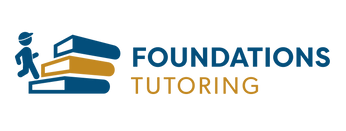Frequently Asked Questions
Yes. Students with dyslexia benefit from targeted instructional strategies that extend beyond traditional whole-group lessons. While they receive foundational instruction in school, additional opportunities for 1:1 or small group instruction are crucial for their development. Specifically, these students require:
Ongoing review of new concepts to reinforce retention, focusing on articulatory gestures for phonemic awareness and grapheme placement for conceptual clarity.
Increased engagement with manipulative letters to enhance phoneme blending, segmentation skills, and proficiency in encoding and decoding.
Dedicated time in blending drills to foster automaticity in decoding.
Regular review of irregular words to enhance retention skills.
Practice sessions focused on reading and rereading decodable passages to improve reading fluency.
Thoughtful monitoring of student responses, with tailored praise for correct answers and constructive feedback for errors, ensuring effective and targeted practice.
These strategies not only support students with dyslexia in mastering essential skills but also foster a supportive learning environment that promotes their academic growth and confidence.
For more information on dyslexia, please go to Information About Dyslexia | UF Literacy Institute
The program is designed for students in grades K-2, but preschoolers can also participate to prepare for Kindergarten. Additionally, older students with learning gaps will benefit from the instruction. At the start of their tutoring, students undergo an assessment to determine if the program is a good fit and to identify the appropriate starting point for their learning journey.
During the session, the tutor will introduce a new concept and then guide students through a series of engaging steps to practice it. These steps will include phoneme blending and segmenting, decoding and encoding, reading and spelling irregular words, and applying their skills to read and spell within connected texts.
Unlike a reading class, Foundations Tutoring Services tailors instruction to the individual. Each child undergoes a comprehensive assessment that identifies their specific strengths and weaknesses, resulting in a customized learning plan based on their unique goals. Students are placed in groups with peers at the same reading level, ensuring focused instruction rather than a tutor teaching to multiple levels at once. Our expert tutors provide face-to-face instruction at the appropriate pace for each student.
Both. If a student is facing challenges, Foundations Tutoring Services will target their learning gaps to help them catch up and advance in reading. For those who already excel, our tutors will focus on enhancing their reading skills and maximizing their potential. If your child is performing adequately but has the capacity for more, we can inspire and motivate them to reach new levels in their reading development.
We offer personalized small group tutoring sessions at a rate of $60 per session, held weekly. This fee covers the hour-long tutoring session, optional at-home activities, and comprehensive guidance on how to make the most of these activities.
Tutoring sessions are conducted at multiple locations across Mankato, most taking place at Blue Earth County Library. Once your child is assigned to a specific tutor, you will receive notification of the session location.
If a child needs to miss a tutoring session, we encourage parents to dedicate extra time to the optional at-home activities provided with each completed lesson. These activities include engaging oral and written tasks, fun games, and stories that invite illustration. Each of these is designed to reinforce the skills the tutor is focusing on. For optimal progress, we recommend that students attend their tutoring sessions as consistently as possible.
A student will participate in a one-on-one oral assessment with a tutor. This assessment involves identifying individual letter sounds, recognizing words with simple spelling patterns, and reading words with complex spelling patterns. It is designed to pinpoint learning gaps effectively. Each student will receive a version of the assessment tailored to their age and reading level.
The tutors utilize UFLI, an explicit and systematic program that equips students with the foundational skills essential for proficient reading. This program follows a thoughtfully designed scope and sequence, ensuring that students systematically acquire each skill and learn to apply them with confidence and automaticity. UFLI is suitable for core instruction in primary grades or for intervention with students who are struggling at any grade level.
If you're acquainted with Gough and Tunmer’s simple view of reading, you understand that reading involves two essential components: decoding (the ability to read the words on the page) and comprehension (the capacity to grasp the meaning of both spoken and written text). Our curriculum emphasizes the decoding aspect of reading. To learn more about the curriculum, please visit the University of Florida Literacy Institute website: UFLI Foundations | UF Literacy Institute
We recommend that students attend tutoring for at least one hour each week until their goals are met and parents are pleased with their child’s progress.
